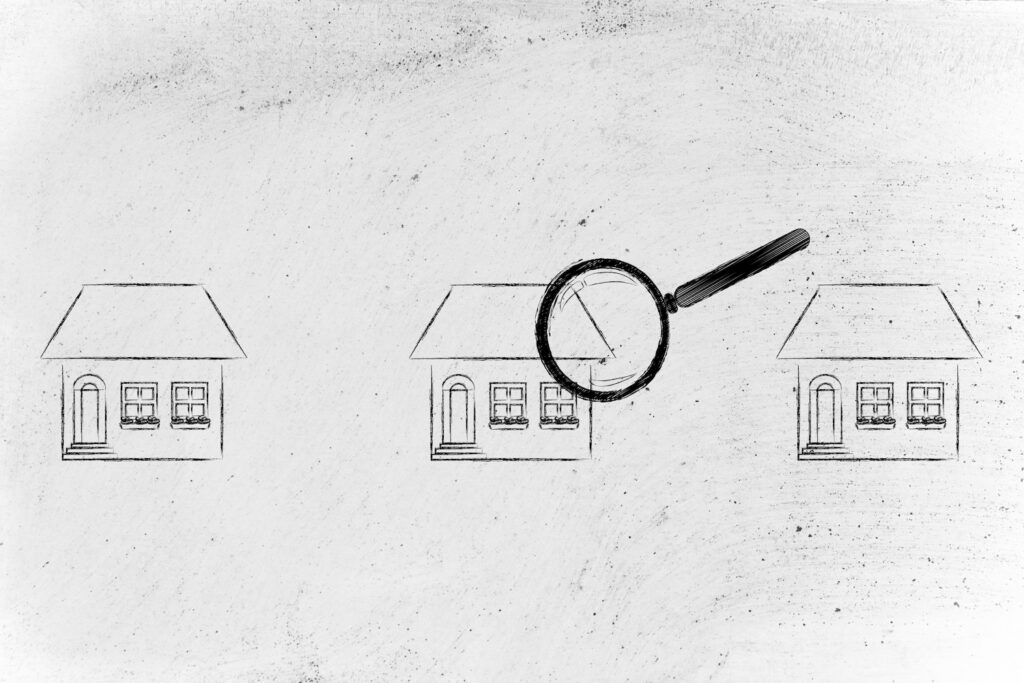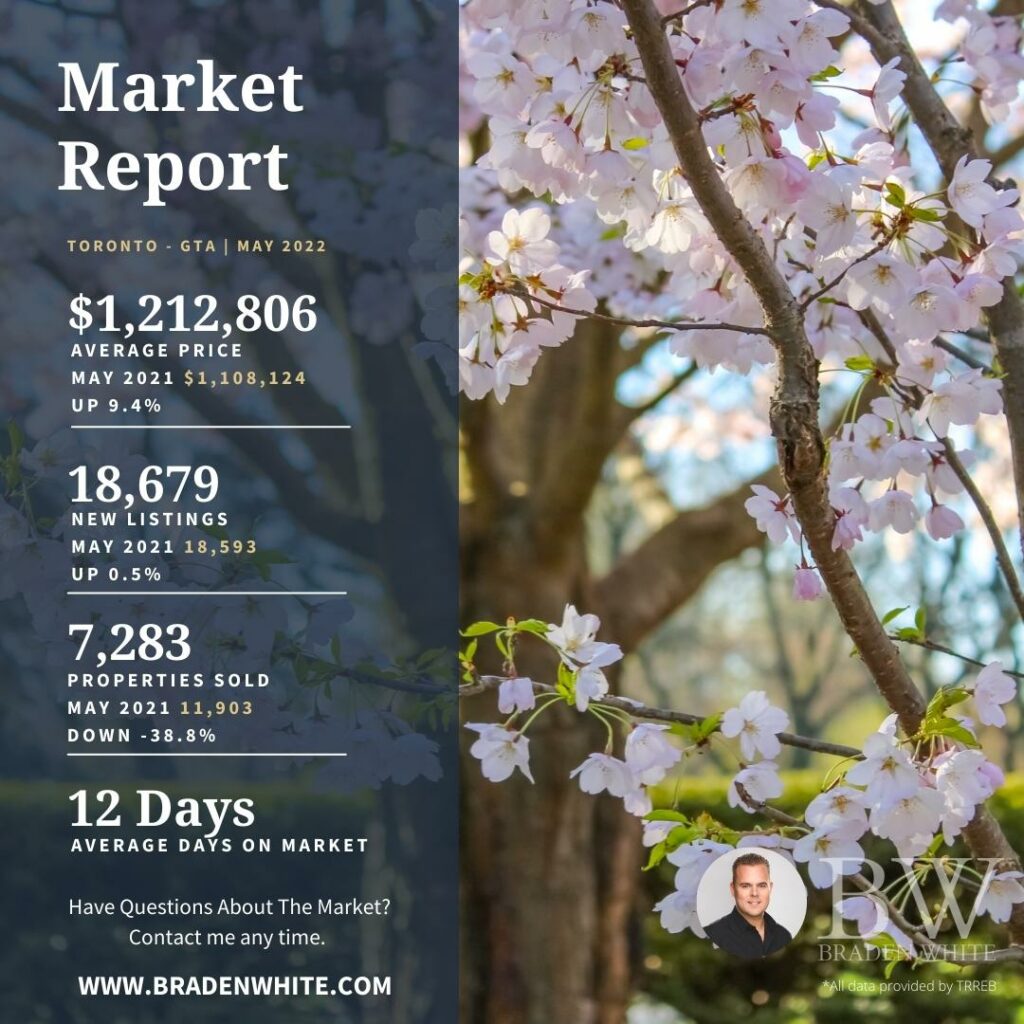
If you’re thinking about buying a home in Canada, one of the most important things to understand is the difference between insured and uninsured mortgages. Below is what you need to know about CMHC insurance.
What is CMHC insurance and why do you need it:
CMHC insurance is a type of mortgage default insurance that protects lenders in the event that a borrower defaults on their mortgage. It’s required on all mortgages with a down payment of less than 20%, and it’s offered by the Canada Mortgage and Housing Corporation (CMHC).
How does CMHC insurance work:
If a borrower defaults on their mortgage, the lender will be reimbursed by CMHC for a portion of the outstanding loan balance. The amount that CMHC will cover depends on the size of the down payment:
For a 5% down payment, CMHC will cover up to 95% of the outstanding loan balance
For a 10% down payment, CMHC will cover up to 90% of the outstanding loan balance
For a 15% down payment, CMHC will cover up to 85% of the outstanding loan balance
What are the benefits of CMHC insurance:
CMHC insurance provides a level of security for lenders, which in turn makes it easier for borrowers to qualify for a mortgage. Without CMHC insurance, lenders would likely require a larger down payment, a higher credit score, or both which could negatively affect your buying power.
How to get CMHC insurance for your mortgage:
If you’re applying for a mortgage with a down payment of less than 20%, your lender will automatically include CMHC insurance in your loan. You won’t need to apply for it separately.
What are the differences between insured and uninsured mortgages in Canada:
The biggest difference between insured and uninsured mortgages is the down payment requirement. For an insured mortgage, the minimum down payment is 5%. For an uninsured mortgage, the minimum down payment is 20%.
Other differences include:
Which type of mortgage is right for you:
The type of mortgage that’s right for you depends on your personal circumstances. If you have a down payment of less than 20%, an insured mortgage may be the best option. If you have a down payment of 20% or more, an uninsured mortgage may be the best option.
Final thoughts
Understanding the difference between insured and uninsured mortgages is important if you’re planning on buying a home in Canada. Be sure to speak with a qualified mortgage professional to determine which type of mortgage is right for you. You can visit CMHC’s website HERE to learn more.
Are you thinking about buying or selling and have questions about the current market? Contact me any time with your questions as I’m always happy to help.

You put in a lot of work to declutter your home and prepare it for showings, you hired a realtor, your realtor staged your place and put together some great marketing materials and you had a week of showings, offer night comes along and you are excited to see how many offers you receive, but, you don’t receive any offers on offer night. You are probably scratching your head wondering how this could have happened.
Although the strategy of listing a property for below market value and holding off offers for a week until your set offer date arrives typically works very well, there are several reasons why it may not work. Below are 5 reasons why you may not have received any offers on your offer night.
1) Priced Incorrectly
Once you have decided to work with a licensed, full-time, Toronto real estate agent, your agent should spend the time to look into the recent sales that have taken place in your neighbourhood. This will allow them to determine certain trends such as the average sale price for your area, average number of days on market along with other valuable market statistics that will assist with selling your home for the most amount of money in the least amount of time. If your real estate agent determines that homes in your area are listing for lower than their market value and are setting offer dates to review any and all offers, they may suggest doing the same with your property. Should you and your real estate agent come to an agreement to use this approach, it is crucial that your property is listed at the right price. By listing your property too high or too low, you may scare off potential buyers. If your agent is experienced, they should be able to determine the appropriate list price that isn’t too low or too high.

2) Timing
Historically speaking, some months such as December, January and August are some of the slowest months in real estate. If you are listing your home during one of these months, the odds of you not receiving any offers is increased. Buyers are typically busy with the seasonal holidays or vacationing during these months which means there are less eyes that will see your property once it hits MLS. In addition to this, even during other months, you need to keep in mind the statutory holidays and long weekends as you will want to work around these in order to ensure that you get as many potential buyers though your home as possible. Unless your local market it extremely hot, just like Toronto was a couple of years ago when properties sold any time of year for well over their list price, most properties don’t show as well as during the cold grey winter months as they do during the spring/early summer and early fall months. This can play a part in a buyer’s decision to put an offer on your home or not.

3) Needed Repairs
Whether it be a list of needed repairs in your pre-list home inspection that is provided to potential buyers, or it’s visible needed repairs that potential buyers see during their showing, depending on the buyers, any needed repairs that aren’t already addressed may scare off potential buyers. It’s important to address as many issues with your home as feasibly possible prior to listing your home for sale.

4) New Competition
Even if your home is in top showing condition and you have done everything necessary to ensure your home attracts as many buyers as possible, if a comparable home comes to market which is perceived to be more desirable at a similar price with the same offer date, you may miss out on receiving offers on your offer date. Should this scenario happen, you may want to discuss your options with your agent, including the possibility of changing your offer date.

5) Announcements
As we have all witnessed over the last couple of months, announcements such as interest rate hikes can play a large part in dictating the amount of demand there is. Announcements such as rate hikes and government announcements relating to new policies that affect the market can create uncertainty and make buyers second guess making a purchase. Should there be a big announcement soon after you list your home for sale, there is a good chance that the amount of demand may be put on pause until there is more certainty.

Above are just some of the reasons why you may not receive an offer on your offer night. With the help of an experienced Toronto real estate agent, you should be able to come up with a solution to this hurdle and sell your home.
If you aren’t currently working with an agent and have questions about the market, selling your home or any other real estate questions, contact me any time. I’m always happy to answer your questions and concerns and to assist you with achieving your specific real estate objectives.
*This is not intended to solicit individuals currently under contract with another real estate agent or real estate brokerage.

Some common thoughts that may go through your head once you’ve decided to list your home for sale and have considered holding an open house are:
These are all common and valid concerns, I mean, who really likes the idea of random people walking through their home and looking at all of their belongings.
Unfortunately, the reality is, if you want to sell your home for the most amount of money in the least amount of time, your home will require as much exposure as possible. Allowing open houses ensures that you have covered every base when it comes to marketing your home for sale, even if doing so makes you feel a little uneasy. By allowing open houses, you are not only allowing potential buyers through your home but you are also allowing word of mouth marketing to take place among people who have visited your home and their friends and network.

Now, as much as the thought of allowing open houses may be stressful, your realtor should take several steps to make the process as comfortable and successful for you as possible. An experienced realtor will often take the following steps below when conducting an open house at your home to ensure your home is secure, tidy and well marketed:
Massive open house signage in your surrounding area
We all see open house signs while driving around the city on the weekend, but how many signs should your realtor put out? The answer is as many as possible. In order to ensure your home receives the attention it deserves and requires to sell, you need to make sure your home stands out from the competition. Putting out more signs than the average open house does just that.
Open house online & print marketing
An experienced agent will go above and beyond simply setting up open house signs to market your open house event. It’s important that you spread the word about your open house far and wide and to as many potential buyers as possible. There are a variety of ways of achieving this with the use of online and print marketing methods such as open house invites, flyers, online social media ads, evites and other creative advertising methods.
“Please remove shoes” signage and requests
A good agent will set up a “Please remove shoes” sign at the front entrance of your home and request all visitors to remove their shoes upon entering. This helps with reducing any potential mess or damage to your floors.
Sanitizing station
As I write this blog, we are still dealing with the affects of covid19 and people are much more attentive to their hand hygiene than they were prior to the pandemic. Your realtor will likely set up a sanitization station near the front entrance of your home and ask visitors to sanitize their hands prior to viewing your home.
Limit Touching
As mentioned above, due to covid19, many sellers don’t like the idea of random people coming into their home and touching everything. With that being said, buyers will want to view as much of your home as possible. How else will they know if they can fit their attire into your primary bedroom closet? Your agent will likely ask visitors to limit the touching of surfaces while in the home and will assist by opening doors and closets for visitors as needed.
Keep an eye on visitors
During all open houses, your agent will ask visitors to sign in to keep track of who visits your home and will also keep an eye on visitors during their visit. Keep in mind that there may be times when your agent won’t be able to watch each and every visitor at the same time as they view different areas of your home. It is important to remove and or store any valuable items prior to allowing open houses or showings.
I’ve personally seen some agents install wireless wifi security cameras throughout the interior of the home while showing properties to my clients. Although this may be tempting to do, it often distracts potential buyers from focusing on your home’s beautiful features as they are too busy with the thought of being watched and listened to. Remember, you want to make visitors feel as comfortable while they are in your home and help them visualize themselves living there, you want them to feel at home.
Prepare the home before doors open
Your agent will come to your home prior to your open house beginning to ensure that all of the lights are turned on and that the rest of your home is in perfect showing condition. It’s important to make sure you put away all dirty dishes, laundry, pet toys and food as well as any other clutter prior to the open house.

Although the thought of having an open house may be a little intimidating, with the help of an experienced realtor, the process should really be quite straight forward. By not holding open houses, you are limiting your exposure to potential buyers could very likely limit your final sale price and possibly extend the number of days that your home has to be listed for.
Are you thinking about listing your home or do you have questions about the current market?
Contact me any time with your real estate questions or to request a free home evaluation to find out how much your home may be worth. I’m happy to help and to answer any real estate questions you may have.

There were no surprises in the May residential resale market data. As a result of rising mortgage interest rates, a process that started in March, the number of properties sold has declined, and average sale prices have moved downward from the record-breaking highs of February.
During the month of February 9,052 homes were reported sold with the Toronto and area’s average sale price coming in at an eye-popping, unsustainable, $1,333,399. In May 7,283 properties were reported sold, with an average sale price of $1,212,806. Since February, sales have declined by more than 19 percent, and the average sale price for all properties sold, including condominium apartments, has slipped by 9 percent.

It should be noted that even with this decline, the average sale price in May remains 9.4 percent higher than that achieved last May ($1,084,124).
A notable shift in market dynamics is the change in activity in the 905 region as compared to the 416 (City of Toronto). Throughout the first two years of the pandemic, more sales were taking place and average sale prices were rising faster in the 905 region. This is no longer the case. During the month of May, the average sale price for all properties sold in the 905 region came in at $1,212,806, 1.7 percent less than the City of Toronto’s average sale of $1,233,748. The ratio of sales has also shifted. Last year the 905 region accounted for 66 percent of all properties reported sold. This May, only 62 percent of all properties changing hands were in the 905 region.
These results are not surprising. As more of the greater Toronto area’s population has been vaccinated against the Covid virus, and as the City of Toronto with its many amenities has opened up, the forces driving buyers to move to the 905 region, the need for more space, ground-level housing, and a sense of safety in less dense communities have begun to wane.
May’s market performance should not be misinterpreted as a market “correction”. Most of the economic factors that drove the resale market through the pandemic, and even before, are still at play, primarily the lack of supply and immigration to southern Ontario. Separate and apart from declining average sale prices and unit sales, the market continues to behave as it did before mortgage interest rates began to rise.
In May 18,679 new properties came to market, marginally higher than the 18,593 that came to market last year. All 7,283 properties that changed hands in May did so after spending only 12 days (on average) on the market, marginally higher than the 11 days it took for properties to sell last May. All properties reported sold, sold for 103 percent of their asking price, 104 percent in the City of Toronto. Semi-detached properties in the City of Toronto sold in only 9 days and at 111 percent of their asking price. Semi-detached properties in Toronto’s eastern trading districts sold at 117 percent of their asking price and shockingly after only 8 days on the market.
This is not a market correction. Rather this data reflects a market attempting to come to grips with higher rates, with more to come. Higher mortgage interest rates have had a psychological as well as an economic impact on the market, particularly on those buyers that are mortgage-rate sensitive and struggling with affordability.
Based on May’s performance it would appear that condominium apartment sales will outperform ground-level sales, detached and semi-detached properties. May saw 1,264 condominium apartment sales in the City of Toronto. They sold at an average sale price approaching $800,000. All these apartments sold at 103 percent of their asking price and in only 15 days, only 2 days longer than it took to sell last year. The average sale price for all condominium apartments reported sold last May in the City of Toronto was only $766,462.
At the other end of the market spectrum, properties having a sale price of $2 Million or more, the decline in sales was also not as severe as the overall market. Whereas the overall market declined by almost 39 percent, year-over-year, month-over-month, sales of $2 Million plus properties only declined by a little more than 22 percent, making it clear that not all sectors of the housing market are responding similarly to rising mortgage interest rates.
Looking forward, higher mortgage interest rates will cause average sale prices to decline, but marginally, plateauing during the summer months. The greater Toronto area, and in particular the City of Toronto, has a very high employment rate, and demand remains strong. Unless the Bank of Canada raises the benchmark rate to the point that it drives the currently strong economy into recession, the lack of supply and increasing demand will keep the market strong, and unfortunately unaffordable. When inflation subsides, and the benchmark rate declines, economic conditions and the housing landscape will be very similar to the tight market that existed just before the pandemic became a factor. So what we are witnessing is a hiatus in the housing market, not a correction.
Have questions about the market, selling or buying?
Contact me any time. I’m happy to answer any questions you may have.
Prepared by Chris Kapches, LLB, President and CEO, Broker, Chestnut Park® Real Estate Limited, Brokerage.

You might think to yourself that obtaining a permit is nothing but a pain in the butt and that you can probably complete the work without obtaining a permit or a bylaw officer ever finding out that you did the work. However, there are several costly issues that you could run into if you don’t obtain a permit. Below are 5 reasons why you should get a building permit.
1) If you’re trying to tackle the project on your own, obtaining a permit will often require a bylaw officer to visit your home. The bylaw officer will be able to provide you with helpful information in regards to what you need to do in order to comply with your local building codes.

2) By following your local building code and having your work inspected throughout the process of your renovation, you will be ensuring that not only your family is safe living in the home but also future families who may end up living in your home once you have moved.
3) If you are hiring a contractor or builder to complete the work, obtaining a building permit will ensure that your contractor or builder is completing the work properly and safely and will ensure they are meeting all local building codes. If you aren’t experienced in construction and aren’t familiar with your local building codes, you won’t be able to determine if your contractor is meeting all of the local building codes.

4) If you complete a project without obtaining a work permit and your home is damaged during the renovation, your insurance company may not agree to assist you with recouping your losses.
5) The TOP REASON to obtain a permit is to avoid having issues with selling your home or running into legal issues after you have sold your home. Many experienced real estate agents will include reps and warranties in their offer which state that you as the seller obtained all necessary permits to complete any projects during the time you have lived in your home. Depending on the way this rep and warranty is written, you as the seller could potentially be held responsible for the cost of any work required or any losses incurred by the buyer should they ever need to fix any work you completed without obtaining a permit. For example, if you were to add a deck to your backyard without obtaining a permit and a bylaw officer informs the buyers of your home at a later date that they need to either fix or replace the deck with one that meets the local codes, you could be held responsible for the costs associated. With the pricing of decks being easily $20K+, not obtaining a permit can be a costly mistake.

As you can see from the above, there are many valid reasons to obtain a permit for your renovation or new build project.
You can start your Toronto building permit application by clicking HERE
Are you thinking about completing upgrades to your home before you sell and are wondering which upgrades will provide you with the highest return? Feel free to contact me for a complimentary consultation. As a full-time, award winning Toronto real estate agent with over 15 years of previous experience as the owner of a design and build firm, I know what projects will provide you with the highest return when it comes time to sell.

It’s no secret that living by the beach has its perks. From the incredible sunrises to the sound of waves crashing against the shore, there are plenty of reasons why people choose to live near the water. As someone who lives and works in The Beaches area, one of the reasons I love living in this beautiful community is the easy access to the beach and Lake Ontario. During the summer months, it’s often easy to forget that you are in Toronto and not on vacation somewhere south of the border, for that very same reason, it’s easy to forget about the dangers that come along with swimming in the Lake.
Unfortunately, as beautiful and inviting as the lake is, it’s beauty is often a disguise for the dangers that come along with swimming in it. As you are likely aware, every summer there seems to be at least one or two drownings in Lake Ontario, if not more. In 2020, there was a total of 244 drownings in Ontario and many likely could have been prevented with proper water safety education and practice. As a parent of two young children, it breaks my heart to think about how the parents must feel when they receive the worst possible news a parent can receive. For that reason, I have put together this post in order to hopefully help prevent more innocent people from drowning.
I must first clarify that I am not a lifeguard or swim instructor. The information being provided in this blog has been sourced from other online sources and should be taken with caution. It is important to speak to a certified swim instructor or a lifeguard for more information about rip currents or to ask any questions you may have. For further questions or concerns, try speaking with the Lifesaving Society
For those of you who live in The Beaches or Upper Beaches or those of you who are experienced swimmers, you are likely already aware that rip currents are one of the biggest threats to swimmers in Lake Ontario. For those of you who are not aware of what a rip current is, the videos below provide good examples. Although you may associate rip currents with oceans and not lakes, it is a known fact that Lake Ontario and Woodbine Beach can produce some very strong rip currents as well as strong general currents. Unfortunately, there have been several cases of swimmers drowning due to the strong currents in the lake.
Below are three videos which explain what a rip current is and what you should do if you find yourself stuck in one. The 5 main takeaways relating to surviving a rip current are listed below but it is important to watch the videos in full.
If you see someone caught in a rip current, the best thing you can do is throw them something that floats such as a life jacket, noodle, paddle board, beach ball, boogie board, life saver, literally anything that floats and get a lifeguard right away. Do NOT try to swim out to the victim to help as this increases the odds of you drowning which isn’t helpful to the victim or yourself.
Hopefully this information is helpful. Make sure you share this important information with your children before the swim season begins.
Wishing you and your family a safe summer.